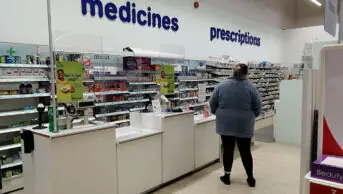
Shutterstock.com
Patients are being forced to wait up to three weeks for medicines owing to outdated legislation preventing pharmacists from being able to substitute alternative formulations, according to a survey conducted by the National Pharmacy Association (NPA).
The survey of “over 400 pharmacists”, published on 16 September 2025, also revealed that 97% of pharmacies reported patients waiting at least once per day for medicines that were out of stock, as pharmacists had to request a new prescription from a prescriber, even though a suitable alternative was available.
A similar majority of pharmacies (95%) reported that some patients went without medication when referred back to their prescriber, while 98% of pharmacies were unable to supply medicines to patients at least once per day, despite having an alternative formulation available.
“Some pharmacies have even reported patients waiting for over three weeks to get a new prescription for certain medicines,” an NPA statement said alongside the results.
It added that legislation from 1968 prevents pharmacists from providing safe alternatives when a medicine is out of stock, “forcing patients back to their GP or other prescribers” and creating additional workload for “overstretched” pharmacy and GP teams.
“For example, this outdated legislation prevents pharmacists from supplying tablets rather than capsules or two 10mg tablets in place of one 20mg tablet, when clinically appropriate and where formulations are equivalent, to help mitigate supply issues.”
Pharmacists also reported “distressed” patients waiting for more than one week for changes to be made to prescriptions for a different formulation of the antipsychotic quetiapine, which is used in the treatment of bipolar and schizophrenia, the NPA said.
“Another pharmacist reported that an eight-year-old patient with a UTI [urinary tract infection] was forced to visit A&E due to a strength of cefalexin being out of stock, despite the pharmacist having an alternative formulation available,” the statement added.
“The patient would have had to wait several days for their GP to amend the prescription, due to the incident occurring on a bank holiday.”
Olivier Picard, chair of the NPA, commented: “Pharmacists are highly trained medicines experts who already advise GPs on clinically suitable alternative medicines that is available in their pharmacy.
“A lot has changed in 60 years. Medicine shortages are now becoming common place, and pharmacists are delivering more clinical care than ever before.
“We urgently need amended legislation, allowing pharmacists the flexibility to make safe prescription substitutions, where appropriate, when a medicine is unavailable.”
In August 2025, the government announced proposals to enable community pharmacists to amend prescriptions in some circumstances in response to medicines shortages.
The Royal Pharmaceutical Society (RPS) also called for pharmacists to be able to amend prescriptions as one of its 20 recommendations in a report on medicines shortages, published in November 2024.
Claire Anderson, president of the RPS, commented: “We have long called for pharmacists to be able to use their professional judgement to make safe and clinically appropriate substitutions to help manage medicines shortages.
“We have welcomed the news that the government intends to consult on this issue shortly. Enabling this would reduce delays for patients, free up GP time and ensure the NHS can function more efficiently.”
A spokesperson for the Department of Health and Social Care highlighted the forthcoming consultation on allowing pharmacists working in a community pharmacy to be granted the flexibility to supply an alternative strength or formulation of drug.
“We know how frustrating and distressing medicine supply issues can be for both patients and pharmacists,” they said.
“Pharmacists play a vital role in shifting care out of hospitals and into the community, and the government will soon consult on proposals to give them more power and flexibility to supply alternatives where it is safe and appropriate to do so.”


